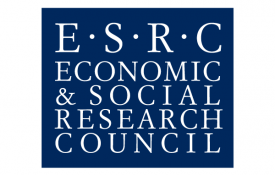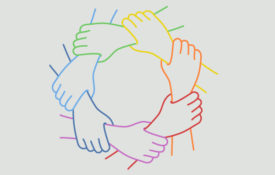-

Economic and Social Research Council (ESRC)
-

APS Provides Recommendations to NIH Initiative Combatting Structural Racism
The initiative, called UNITE, aims to understand and address racism in the broader scientific community and more specifically in NIH-supported work. APS’s comments, informed by psychological science, echo the value of improving inclusivity and diversity in science.
-
Pandemic Got You Down? Psychologists Suggest Time Travel — Sort of.
Wouldn’t it be nice if we could peek into the future to reassure ourselves? That’s not actually possible, but there is a psychological technique for regulating emotions that employs this idea. It’s called “temporal distancing,” and you can think of it as mental time travel. If the concept sounds familiar, it’s a bit like reminding yourself of the ancient adage “this, too, shall pass.” I consulted three experts about how to do it and why it works. Trapped in the moment Right now, you may find many things upsetting: You might be Zoomed out, missing your friends or mourning lost loved ones.
-
Students Who Gesture During Learning ‘Grasp’ Concepts Better
When we talk, we naturally gesture—we open our palms, we point, we chop the air for emphasis. Such movement may be more than superfluous hand flapping. It helps communicate ideas to listeners and even appears to help speakers think and learn. A growing field of psychological research is exploring the potential of having students or teachers gesture as pupils learn. Studies have shown that people remember material better when they make spontaneous gestures, watch a teacher’s movements or use their hands and arms to imitate the instructor. More recent work suggests that telling learners to move in specific ways can help them learn—even when they are unaware of why they are making the motions.
-
The Many Minds of the Octopus
Cephalopods are having a moment. An octopus stars in a documentary nominated for an Academy Award (“My Octopus Teacher”). Octos, as scuba-diving philosopher Peter Godfrey Smith calls them, also play a leading role in his marvelous new book “Metazoa,” alongside a supporting cast of corals, sponges, sharks and crabs. (I like Mr. Godfrey-Smith’s plural, which avoids the tiresome debate over Latin and Greek endings). Part of the allure of the octos is that they are both very smart, probably the smartest of invertebrates, and extremely weird. The intelligence and weirdness may be connected and can perhaps teach us something about those other intelligent, weird animals we call homo sapiens. ...
-

For Marginalized Grad Students, a Guide to the “Hidden Curriculum”
DiSSECT is an innovative effort to facilitate antiracist progress in graduate education.


